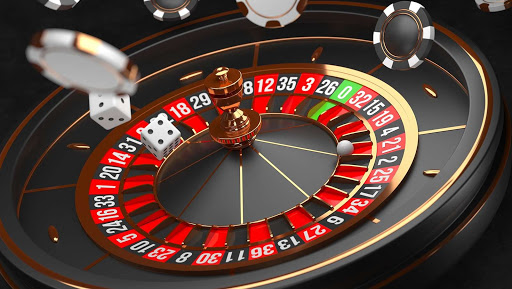They both win through long-term thinking.
In both casinos and hiring processes, a probabilistic process has been set up to favor the organization by at least a small amount. Over time that slight edge produces significant profit.
 Let's start with the casino. As we all know, casinos and other gambling venues exist because gamblers who are feeling lucky believe there is ample opportunity for them to win, and sometimes win big. People are not stupid, and they know the long-term odds are not in their favor inside a casino. However, we humans are of course optimists (at least in general). This means we feel lucky much of the time, and feeling lucky means we think we can beat the odds. So we head to casinos and take our chances.
Let's start with the casino. As we all know, casinos and other gambling venues exist because gamblers who are feeling lucky believe there is ample opportunity for them to win, and sometimes win big. People are not stupid, and they know the long-term odds are not in their favor inside a casino. However, we humans are of course optimists (at least in general). This means we feel lucky much of the time, and feeling lucky means we think we can beat the odds. So we head to casinos and take our chances.
Of course, people feeling lucky will try to beat the odds when the odds are only ‘slightly' against them. So that's how the odds are all set up. You can't make the odds too one-sided, because no one will participate.
There is, of course, one very familiar exception to that rule: lotteries. In a lottery, the odds are strongly stacked against the participant. However, the potential payout is so ridiculously high that people think it's still worth taking a chance, since they only have to get lucky once. People also know that in a lottery at least one person is going to get lucky - there is always a winner - so why not them?
So, back to casinos for a moment. In order to induce people to take their chances, casinos set up odds that are slightly in their favor. For example, if a gambler follows the perfect betting strategy at Blackjack, the house edge is only 0.5% - those are odds of 50.5 to 49.5 - which are very slight indeed. In case you are wondering, the odds for other games are:
Blackjack: 0.5%
Craps: 0.8%
Baccarat: 1.06%
Roulette: 5.26%
Slots: 17%
Keno: 25%
(https://www.investopedia.com/articles/personal-finance/110415/why-does-house-always-win-look-casino-profitability.asp)
Looking at the above, I guess that's a reason why there are so many slot machines on the floor of any casino. At least try roulette, all you slot-loving people!
Next, let's consider hiring processes. Certainly, we all want the odds as high as possible for hiring high-performing new employees. We don't need a slight edge. We want as large an edge as possible. You may think this means that a hiring process can produce odds much higher than 50:50. However, this is not as easy as you may think.
Study after study shows that hiring is a tricky business. By employing basic principles you can raise your chances of making a good hire to above 50:50, but not as high as you might think. People fail in jobs for many different reasons - some of which cannot be predicted.
Let's consider some numbers to illustrate my point. When psychologists evaluate a selection process, they like to talk about validity. This is typically expressed in numerical terms as a correlation of selection scores with actual performance. Like correlation, computed validity values can range between -1 and +1, though only positive values contribute to better hiring decisions. Many many studies have been performed to estimate the relative validity of different types of hiring activities. For instance, unstructured employment interviews generally have a validity around 0.2. Personality assessments usually have a validity below 0.1. Other types of assessments, such as cognitive testing, can have a validity as high as 0.4.
So what do you do with these numbers? Well. Most psychologists would tell you to think in terms of the percent of the variance in performance that is explained by the measure. This is usually the square of the validity value times 100%. So, an unstructured interview would, on average, produce results that explain 0.2*0.2*100% = 4 percent of the variance in performance.
That's right: 4 percent. Even the most valid assessments can only explain around 16% of the variance in performance. By combining multiple selection techniques, such as interviews and different types of testing, you can increase your odds a bit more.
My point is that these activities and instruments give you an edge, but it's only a slight edge. If you want that edge to pay off, you need to think like a casino. That is, you need to think and act for the long-term.
For hiring managers, this means putting in place a solid hiring process and following it carefully and religiously.
